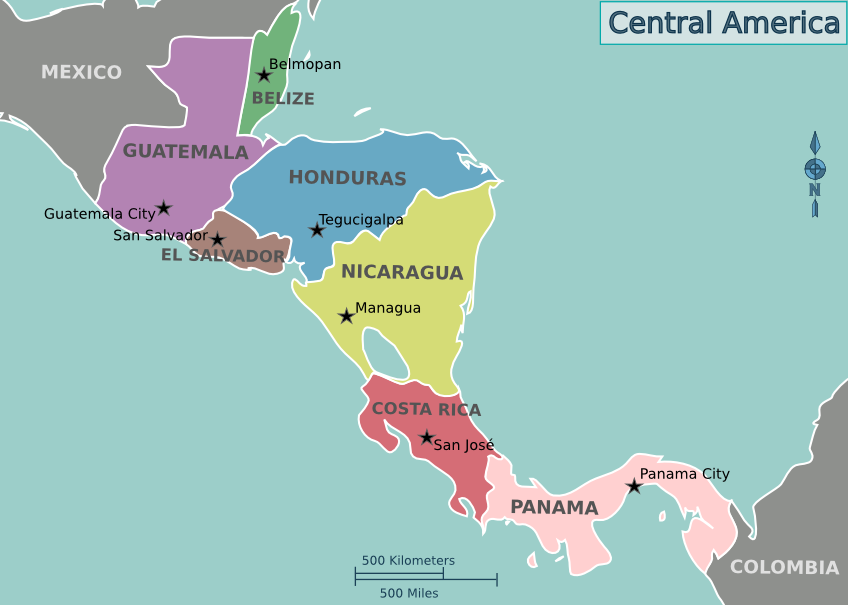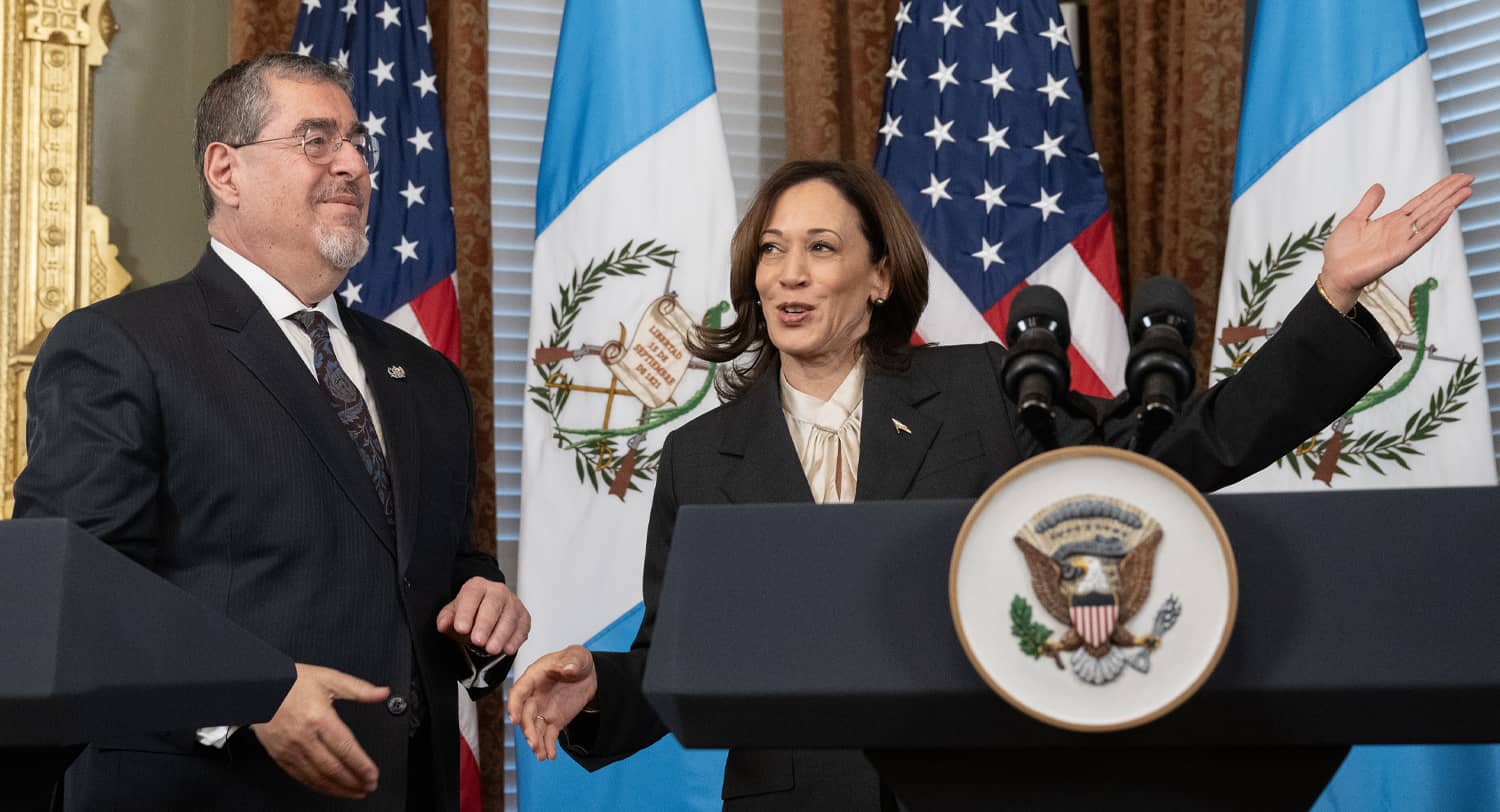Guatemala could become a key partner in the US efforts to manage migration flows from Central and South America. Looking ahead, whoever is elected the next president of the United States, either Kamala Harris or Donald Trump, will look to Guatemala to help manage migration in the countries south of Mexico.
Guatemala has been a reliable foreign policy partner to the United States, particularly with regard to shared interests in Israel, Taiwan and Ukraine. In 2018, former President Jimmy Morales relocated Guatemala’s embassy to Jerusalem to show solidarity with Israel following the US move of its embassy to Jerusalem. Guatemala has been a vocal supporter of the Ukrainian cause at a time when other Latin American countries hemmed and hawed.
The United States needs a similar partnership when it comes to the migration challenge. When one looks at the map of Central America, Guatemala and Panama are two “choke points” and it is clear that a renewed focus on migration will mean a renewed focus and a renewed burden on Guatemala (and Panama).

Guatemala’s long-standing diplomatic recognition of Taiwan, one of only 12 countries and allies to do so, has shaped its foreign policy, particularly in its dealings with China. Taiwan recently sponsored a long-term technical mission to Guatemala to help build capacity to tackle natural disasters. However, in recent years, trade and investment between Taiwan and Guatemala have started to look less attractive for Guatemala, especially in comparison to the potential trade and investment (and infrastructure) flows with China.
During the COVID-19 pandemic, Guatemala was made to feel the costs of recognizing Taiwan in the face of China’s vaccine diplomacy. China utilized the crisis to advance its interests in Latin America. Guatemala suffered delays in receiving vaccines from the United States and the West while its neighbor El Salvador received quicker and cheaper vaccines from China. When Nicaragua switched its diplomatic ties to support China, it too received 200,000 vaccines less than a week later. Considering this, Taiwan and the US should work together to strengthen their ties with Guatemala and offer programs to ensure its citizens have security and economic opportunities at home.
Four main programmatic areas come to mind: enhanced security, public infrastructure, anti-corruption and investment climate (the last to attract more foreign direct investments into the country).
Guatemala grapples with security challenges rooted in systemic corruption, gang violence, drug trafficking and transnational crime, which lead many young people to emigrate. Many of these challenges stem from America’s consumption of illegal narcotics. In regions along its borders, drug trafficking organizations leverage Guatemala’s strategic location as a transit hub for illicit narcotics destined for the US. An estimated 80–90 percent of cocaine shipments from South America to the US pass through Guatemala, making the country a critical funnel in the global drug trade. These transnational organizations are heavily armed and well-funded and weaken state institutions.
Guatemala’s border security issues from drug trafficking are worsened by the country’s underinvestment in public infrastructure, a consequence of pervasive low tax revenue. In 2022, the country had a tax-to-GDP ratio of 14.4 percent, which is lower than its peers across Latin America and the Caribbean but still higher than in the recent past. Guatemala has been able to increase its tax collections without raising revenues by broadening the tax base. This revenue shortfall is one factor in the slow development of critical infrastructure projects.
At the same time, even with higher tax revenues, the government has low capacity to implement projects owing to poor infrastructure. The underdeveloped road network hinders access to markets and public services, particularly in the poorest areas. Guatemala’s port infrastructure, especially its two major ports, remains consistently saturated, underscoring the need for expanding logistics infrastructure. Efforts to address these shortcomings through public-private partnerships or privatizations, including toll roads, have been limited by political opposition, further delaying much-needed infrastructure improvements.
Corruption remains pervasive with Guatemala ranking as the second most corrupt country in the region. Upholding the rule of law continues to be a major challenge and efforts to combat corruption have been insufficient. The International Commission Against Impunity in Guatemala, established during the Bush administration to help restore the rule of law, ultimately failed to achieve its goals due to perceived political bias and improper handling of prosecutions, particularly a one-sided focus on specific political actors. Upholding the rule of law remains a central challenge. President Bernardo Arévalo (center-left) assumed office in January 2024 and championed a platform focused on strong social and economic reforms and prioritizing an anti-corruption agenda.
Despite these challenges, Guatemala has a large, well-developed business landscape, particularly in the agriculture, banking, tourism, and manufacturing sectors which hold immense potential for expansion. Its agriculture sector offers a significant comparative advantage with the capacity to drive exports and job creation, especially in rural areas. Guatemala’s banking market remains robust, the second largest in Central America, and poised for significant growth following a brief decline between 2020-2022. Meanwhile, the country’s manufacturing sector accounts for roughly 20 percent of gross domestic product, offering a critical foundation for “nearshoring” and driving broader economic development, fostering employment, and promoting inclusive growth.
The United States should help Guatemala realize its economic potential so that fewer people are incentivized to migrate. Guatemala should aspire to be the Chile of Central America, prosperous with a diverse economy.

